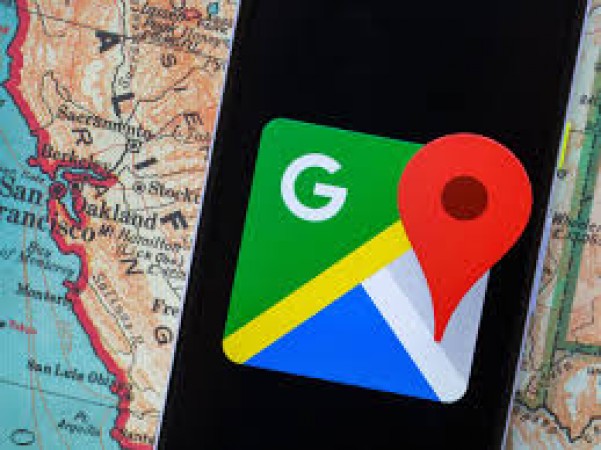
In a groundbreaking development, Google Maps is undergoing a substantial transformation that promises to redefine user privacy. This update signifies a pivotal shift in how location data is managed, providing users with unprecedented control over the information they share.
The imminent change in Google Maps revolves around a redefined approach to location tracking, placing privacy at the forefront of user experience. This adjustment seeks to address growing concerns about the extensive use of location data in the digital age.
Central to this shift is the empowerment of users, granting them the authority to limit the government's access to their location data. By placing control back into the hands of the individual, Google Maps aims to create a more user-centric and privacy-conscious environment.
In embracing this change, Google Maps is ushering in an era where users can navigate the digital landscape with a heightened sense of anonymity. This transition signifies a departure from the era of pervasive digital surveillance, fostering a more private and secure online experience.
The adjustment in Google Maps aligns with the evolving global standards for digital privacy. As societies grapple with the implications of digitalization, companies are compelled to adapt, ensuring their practices adhere to the highest privacy standards.
At the heart of this transformation is a commitment to a user-centric design. Google Maps acknowledges the need for a paradigm shift, placing control firmly in the hands of the individual user. This not only meets regulatory expectations but also reflects a genuine commitment to user welfare.
As Google Maps charts a course through uncharted privacy waters, the challenge lies in striking a delicate balance between providing personalized services and safeguarding user privacy. The navigation metaphor extends beyond geography, encapsulating the complexity of privacy concerns in the digital realm.
One of the key changes involves the implementation of robust encryption for both stored and transmitted location data. This security measure aims to fortify user data against unauthorized access and ensures that even if accessed, the information remains indecipherable.
To minimize the exposure of user information, Google Maps is reducing the duration for which location history is retained. This temporal limitation serves as a proactive measure, limiting the potential misuse of historical location data.
Shifting from a default opt-out model to an opt-in model for location tracking represents a fundamental change. Users are now presented with a choice, reinforcing the principle of informed consent. This move respects the autonomy of users in deciding the extent to which they wish to share their location data.
With these changes, users can enjoy an enhanced level of privacy. The incorporation of encryption, limited data retention, and opt-in tracking collectively contribute to creating a more secure digital environment for users.
The adjustment in Google Maps directly addresses concerns related to governmental access to location data. By curtailing such access, the update serves as a safeguard against potential privacy infringements, offering users a level of protection against unwarranted surveillance.
Overall, these changes contribute to the creation of a safer digital space. Users can engage with Google Maps with the confidence that their location data is subject to heightened privacy measures, ensuring a more secure online experience.
The transition involves a delicate balancing act. On one hand, personalized services require a certain level of data access, while on the other, privacy concerns necessitate restraint. Google Maps acknowledges this dichotomy and strives to strike a balance that respects user privacy without compromising utility.
To foster user trust, Google is committed to transparency initiatives. Providing users with clear and accessible information about how their data is handled ensures an open and honest relationship between the platform and its users.
Educating users about the changes and their implications is crucial. Google Maps is undertaking efforts to inform users about the evolving privacy landscape, enabling them to make informed decisions about their engagement with the platform.
This update marks a starting point rather than a conclusion. Google Maps is committed to continuous improvement, actively seeking user feedback to refine and enhance privacy features. This iterative approach ensures that the platform remains adaptive to the evolving needs and expectations of its user base.
Incorporating user suggestions is paramount to the future development of location tracking on Google Maps. By involving users in shaping the trajectory of these changes, the platform ensures that it remains responsive to the diverse perspectives and requirements of its global user community.
Beyond its own ecosystem, Google Maps is positioned as an advocate for global privacy standards. The company recognizes the importance of creating a cohesive and secure digital environment, and actively participates in shaping the discourse around privacy standards on a global scale.
The changes in Google Maps represent a monumental step towards redefining the landscape of digital privacy. As users increasingly value their privacy, technology must adapt to meet these expectations. With Google Maps leading the charge, we are witnessing not just an update but the initiation of a new chapter—one where technology aligns with user values, ensuring that the digital space remains a dynamic yet secure realm for all.
Goa Plans Grand Celebrations for 62nd Liberation Anniversary on December 19
Adani Group Pledges $723 Million Investment in Green Energy Projects
PM Modi Opened Kashi Tamil Sangamam, Promoting Unity in Diversity Across India